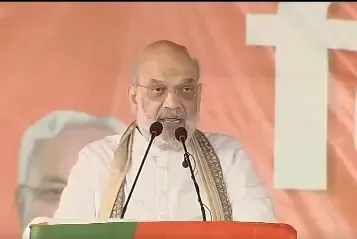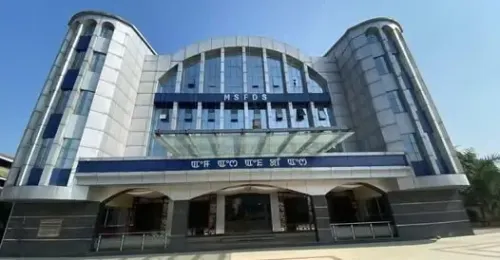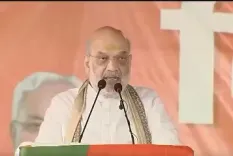Why Did Jharkhand HC Impose Rs 1 Lakh Fine on JPSC?

Synopsis
Key Takeaways
- The High Court fined JPSC Rs 1 lakh for wrongful rejection of a qualified candidate.
- Manoj Kumar Kachhap scored high but was excluded due to a technical error.
- The court mandated Kachhap's appointment to the vacant post.
- The ruling underlines the importance of accountability in public service recruitment.
- Technical errors should not impede deserving candidates' opportunities.
Ranchi, June 13 (NationPress) In a significant reprimand to the Jharkhand Public Service Commission (JPSC), the High Court has levied a penalty of Rs 1 lakh for erroneously dismissing a deserving candidate’s application for the position of Assistant Professor.
A division bench led by Chief Justice M.S. Ramachandra Rao rejected JPSC’s appeal and reaffirmed an earlier ruling from a single bench that mandated the appointment of Manoj Kumar Kachhap.
This case originates from a 2018 recruitment initiative aimed at filling four vacancies for Assistant Professor positions in the Nagpuri language.
Kachhap applied and achieved a score of 72.10 out of 85 in the academic assessment. Despite this, his name was absent from the shortlist for interviews.
Upon investigation, Kachhap found that his application was deemed invalid because the online exam fee he submitted was not credited to the JPSC account due to a technical glitch. Alarmingly, his name was not included in the official list of rejected candidates, leaving him unaware of the situation.
Disputing his exclusion, Kachhap filed a writ petition in the High Court. The single bench mandated his inclusion in the interview process, stating that the final outcome would rely on the court’s decision. JPSC complied, allowing Kachhap to participate in the interview.
Although the final results were published on December 23, 2021, one position remained unfilled in accordance with the court's interim order. Subsequently, the court requested that JPSC provide Kachhap’s interview scores in a sealed envelope, revealing that he had secured the top position throughout the selection process.
Taking a serious view of the matter, the court ordered JPSC to appoint him to the open position within a span of four weeks.
It concluded that a technical error could not serve as a justification for denying the appointment of the most qualified candidate.
The bench also highlighted that numerous examinations exempt Scheduled Tribe (ST) candidates from paying fees, further undermining JPSC’s inflexible stance.
JPSC contested the single bench’s decision, contending that fee payment was essential and that the non-receipt automatically disqualified a candidate.
However, Kachhap’s attorney, Advocate Savyasachi, contended that his client was unaware of the transaction failure as he was not listed among the rejected candidates.
After reviewing arguments from both parties, the division bench upheld the single bench’s ruling and imposed a Rs 1 lakh fine on JPSC.









